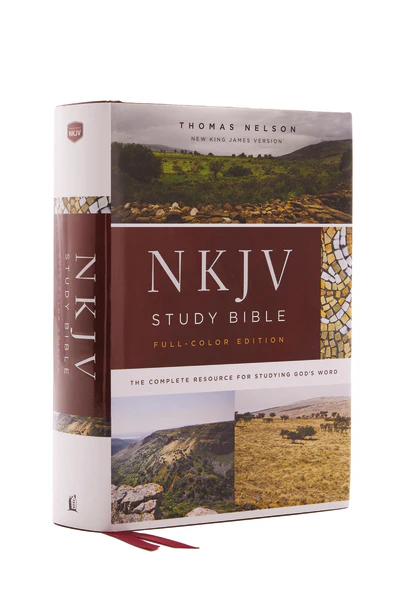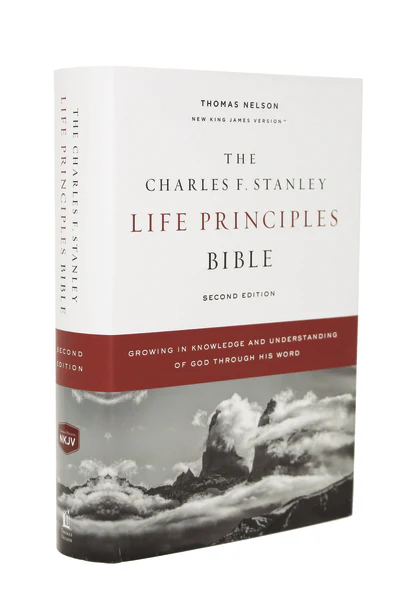Esther 1-3
New King James Version
The King Dethrones Queen Vashti
1 Now it came to pass in the days of (A)Ahasuerus[a] (this was the Ahasuerus who reigned (B)over one hundred and twenty-seven provinces, (C)from India to Ethiopia), 2 in those days when King Ahasuerus (D)sat on the throne of his kingdom, which was in (E)Shushan[b] the [c]citadel, 3 that in the third year of his reign he (F)made a feast for all his officials and servants—the powers of Persia and Media, the nobles, and the princes of the provinces being before him— 4 when he showed the riches of his glorious kingdom and the splendor of his excellent majesty for many days, one hundred and eighty days in all.
5 And when these days were completed, the king made a feast lasting seven days for all the people who were present in [d]Shushan the [e]citadel, from great to small, in the court of the garden of the king’s palace. 6 There were white and blue linen curtains fastened with cords of fine linen and purple on silver rods and marble pillars; and the (G)couches were of gold and silver on a mosaic pavement of alabaster, turquoise, and white and black marble. 7 And they served drinks in golden vessels, each vessel being different from the other, with royal wine in abundance, (H)according to the [f]generosity of the king. 8 In accordance with the law, the drinking was not compulsory; for so the king had ordered all the officers of his household, that they should do according to each man’s pleasure.
9 Queen Vashti also made a feast for the women in the royal palace which belonged to King Ahasuerus.
10 On the seventh day, when the heart of the king was merry with wine, he commanded Mehuman, Biztha, (I)Harbona, Bigtha, Abagtha, Zethar, and Carcas, seven eunuchs who served in the presence of King Ahasuerus, 11 to bring Queen Vashti before the king, wearing her royal crown, in order to show her beauty to the people and the officials, for she was beautiful to behold. 12 But Queen Vashti refused to come at the king’s command brought by his eunuchs; therefore the king was furious, and his anger burned within him.
13 Then the king said to the (J)wise men (K)who understood the times (for this was the king’s manner toward all who knew law and justice, 14 those closest to him being Carshena, Shethar, Admatha, Tarshish, Meres, Marsena, and Memucan, the (L)seven princes of Persia and Media, (M)who had access to the king’s presence, and who [g]ranked highest in the kingdom): 15 “What shall we do to Queen Vashti, according to law, because she did not obey the command of King Ahasuerus brought to her by the eunuchs?”
16 And Memucan answered before the king and the princes: “Queen Vashti has not only wronged the king, but also all the princes, and all the people who are in all the provinces of King Ahasuerus. 17 For the queen’s behavior will become known to all women, so that they will (N)despise their husbands in their eyes, when they report, ‘King Ahasuerus commanded Queen Vashti to be brought in before him, but she did not come.’ 18 This very day the noble ladies of Persia and Media will say to all the king’s officials that they have heard of the behavior of the queen. Thus there will be excessive contempt and wrath. 19 If it pleases the king, let a royal [h]decree go out from him, and let it be recorded in the laws of the Persians and the Medes, so that it will (O)not [i]be altered, that Vashti shall come no more before King Ahasuerus; and let the king give her royal position to another who is better than she. 20 When the king’s decree which he will make is proclaimed throughout all his empire (for it is great), all wives will (P)honor their husbands, both great and small.”
21 And the reply pleased the king and the princes, and the king did according to the word of Memucan. 22 Then he sent letters to all the king’s provinces, (Q)to each province in its own script, and to every people in their own language, that each man should (R)be master in his own house, and speak in the language of his own people.
Esther Becomes Queen
2 After these things, when the wrath of King Ahasuerus subsided, he remembered Vashti, (S)what she had done, and what had been decreed against her. 2 Then the king’s servants who attended him said: “Let beautiful young virgins be sought for the king; 3 and let the king appoint officers in all the provinces of his kingdom, that they may gather all the beautiful young virgins to [j]Shushan the [k]citadel, into the women’s quarters, under the custody of [l]Hegai the king’s eunuch, custodian of the women. And let beauty preparations be given them. 4 Then let the young woman who pleases the king be queen instead of Vashti.”
This thing pleased the king, and he did so.
5 In [m]Shushan the [n]citadel there was a certain Jew whose name was Mordecai the son of Jair, the son of Shimei, the son of (T)Kish, a Benjamite. 6 (U)Kish[o] had been carried away from Jerusalem with the captives who had been captured with [p]Jeconiah king of Judah, whom Nebuchadnezzar the king of Babylon had carried away. 7 And Mordecai had brought up Hadassah, that is, Esther, (V)his uncle’s daughter, for she had neither father nor mother. The young woman was lovely and beautiful. When her father and mother died, Mordecai took her as his own daughter.
8 So it was, when the king’s command and decree were heard, and when many young women were (W)gathered at [q]Shushan the [r]citadel, under the custody of Hegai, that Esther also was taken to the king’s palace, into the care of Hegai the custodian of the women. 9 Now the young woman pleased him, and she obtained his favor; so he readily gave (X)beauty preparations to her, besides [s]her allowance. Then seven choice maidservants were provided for her from the king’s palace, and he moved her and her maidservants to the best place in the house of the women.
10 (Y)Esther had not [t]revealed her people or family, for Mordecai had charged her not to reveal it. 11 And every day Mordecai paced in front of the court of the women’s quarters, to learn of Esther’s welfare and what was happening to her.
12 Each young woman’s turn came to go in to King Ahasuerus after she had completed twelve months’ preparation, according to the regulations for the women, for thus were the days of their preparation apportioned: six months with oil of myrrh, and six months with perfumes and preparations for beautifying women. 13 Thus prepared, each young woman went to the king, and she was given whatever she desired to take with her from the women’s quarters to the king’s palace. 14 In the evening she went, and in the morning she returned to the second house of the women, to the custody of Shaashgaz, the king’s eunuch who kept the concubines. She would not go in to the king again unless the king delighted in her and called for her by name.
15 Now when the turn came for Esther (Z)the daughter of Abihail the uncle of Mordecai, who had taken her as his daughter, to go in to the king, she requested nothing but what Hegai the king’s eunuch, the custodian of the women, advised. And Esther (AA)obtained favor in the sight of all who saw her. 16 So Esther was taken to King Ahasuerus, into his royal palace, in the tenth month, which is the month of Tebeth, in the seventh year of his reign. 17 The king loved Esther more than all the other women, and she obtained grace and favor in his sight more than all the virgins; so he set the royal (AB)crown upon her head and made her queen instead of Vashti. 18 Then the king (AC)made a great feast, the Feast of Esther, for all his officials and servants; and he proclaimed a holiday in the provinces and gave gifts according to the [u]generosity of a king.
Mordecai Discovers a Plot
19 When virgins were gathered together a second time, Mordecai sat within the king’s gate. 20 (AD)Now Esther had not revealed her family and her people, just as Mordecai had charged her, for Esther obeyed the command of Mordecai as when she was brought up by him.
21 In those days, while Mordecai sat within the king’s gate, two of the king’s eunuchs, [v]Bigthan and Teresh, doorkeepers, became furious and sought to lay hands on King Ahasuerus. 22 So the matter became known to Mordecai, (AE)who told Queen Esther, and Esther informed the king in Mordecai’s name. 23 And when an inquiry was made into the matter, it was confirmed, and both were hanged on a gallows; and it was written in (AF)the book of the chronicles in the presence of the king.
Haman’s Conspiracy Against the Jews
3 After these things King Ahasuerus promoted Haman, the son of Hammedatha the (AG)Agagite, and (AH)advanced him and set his seat above all the princes who were with him. 2 And all the king’s servants who were (AI)within the king’s gate bowed and paid homage to Haman, for so the king had commanded concerning him. But Mordecai (AJ)would not bow or pay homage. 3 Then the king’s servants who were within the king’s gate said to Mordecai, “Why do you transgress the (AK)king’s command?” 4 Now it happened, when they spoke to him daily and he would not listen to them, that they told it to Haman, to see whether Mordecai’s words would stand; for Mordecai had told them that he was a Jew. 5 When Haman saw that Mordecai (AL)did not bow or pay him homage, Haman was (AM)filled with wrath. 6 But he disdained to lay hands on Mordecai alone, for they had told him of the people of Mordecai. Instead, Haman (AN)sought to destroy all the Jews who were throughout the whole kingdom of Ahasuerus—the people of Mordecai.
7 In the first month, which is the month of Nisan, in the twelfth year of King Ahasuerus, (AO)they cast Pur (that is, the lot), before Haman [w]to determine the day and the [x]month, [y]until it fell on the twelfth month, which is the month of Adar.
8 Then Haman said to King Ahasuerus, “There is a certain people scattered and dispersed among the people in all the provinces of your kingdom; (AP)their laws are different from all other people’s, and they do not keep the king’s laws. Therefore it is not fitting for the king to let them remain. 9 If it pleases the king, let a decree be written that they be destroyed, and I will pay ten thousand talents of silver into the hands of those who do the work, to bring it into the king’s treasuries.”
10 So the king (AQ)took (AR)his signet ring from his hand and gave it to Haman, the son of Hammedatha the Agagite, the (AS)enemy of the Jews. 11 And the king said to Haman, “The money and the people are given to you, to do with them as seems good to you.”
12 (AT)Then the king’s scribes were called on the thirteenth day of the first month, and a decree was written according to all that Haman commanded—to the king’s satraps, to the governors who were over each province, to the officials of all people, to every province (AU)according to its script, and to every people in their language. (AV)In the name of King Ahasuerus it was written, and sealed with the king’s signet ring. 13 And the letters were (AW)sent by couriers into all the king’s provinces, to destroy, to kill, and to annihilate all the Jews, both young and old, little children and women, (AX)in one day, on the thirteenth day of the twelfth month, which is the month of Adar, and (AY)to plunder their [z]possessions. 14 (AZ)A copy of the document was to be issued as law in every province, being published for all people, that they should be ready for that day. 15 The couriers went out, hastened by the king’s command; and the decree was proclaimed in [aa]Shushan the [ab]citadel. So the king and Haman sat down to drink, but (BA)the city of Shushan was [ac]perplexed.
Footnotes
- Esther 1:1 Generally identified with Xerxes I (485–464 b.c.)
- Esther 1:2 Or Susa
- Esther 1:2 Or fortified palace, and so elsewhere in the book
- Esther 1:5 Or Susa
- Esther 1:5 palace
- Esther 1:7 Lit. hand
- Esther 1:14 Lit. sat in first place
- Esther 1:19 Lit. word
- Esther 1:19 pass away
- Esther 2:3 Or Susa
- Esther 2:3 palace
- Esther 2:3 Heb. Hege
- Esther 2:5 Or Susa
- Esther 2:5 palace
- Esther 2:6 Lit. Who
- Esther 2:6 Jehoiachin, 2 Kin. 24:6
- Esther 2:8 Or Susa
- Esther 2:8 palace
- Esther 2:9 Lit. her portions
- Esther 2:10 Revealed the identity of
- Esther 2:18 Lit. hand
- Esther 2:21 Bigthana, Esth. 6:2
- Esther 3:7 Lit. from day to day and month to month
- Esther 3:7 LXX adds to destroy the people of Mordecai in one day; Vg. adds the nation of the Jews should be destroyed
- Esther 3:7 So with MT, Vg.; LXX and the lot fell on the fourteenth of the month
- Esther 3:13 LXX adds the text of the letter here
- Esther 3:15 Or Susa
- Esther 3:15 palace
- Esther 3:15 in confusion
John 11
New King James Version
The Death of Lazarus
11 Now a certain man was sick, Lazarus of Bethany, the town of (A)Mary and her sister Martha. 2 (B)It was that Mary who anointed the Lord with fragrant oil and wiped His feet with her hair, whose brother Lazarus was sick. 3 Therefore the sisters sent to Him, saying, “Lord, behold, he whom You love is sick.”
4 When Jesus heard that, He said, “This sickness is not unto death, but for the glory of God, that the Son of God may be glorified through it.”
5 Now Jesus loved Martha and her sister and Lazarus. 6 So, when He heard that he was sick, (C)He stayed two more days in the place where He was. 7 Then after this He said to the disciples, “Let us go to Judea again.”
8 The disciples said to Him, “Rabbi, lately the Jews sought to (D)stone You, and are You going there again?”
9 Jesus answered, “Are there not twelve hours in the day? (E)If anyone walks in the day, he does not stumble, because he sees the (F)light of this world. 10 But (G)if one walks in the night, he stumbles, because the light is not in him.” 11 These things He said, and after that He said to them, “Our friend Lazarus (H)sleeps, but I go that I may wake him up.”
12 Then His disciples said, “Lord, if he sleeps he will get well.” 13 However, Jesus spoke of his death, but they thought that He was speaking about taking rest in sleep.
14 Then Jesus said to them plainly, “Lazarus is dead. 15 And I am glad for your sakes that I was not there, that you may believe. Nevertheless let us go to him.”
16 Then (I)Thomas, who is called the Twin, said to his fellow disciples, “Let us also go, that we may die with Him.”
I Am the Resurrection and the Life
17 So when Jesus came, He found that he had already been in the tomb four days. 18 Now Bethany was near Jerusalem, about [a]two miles away. 19 And many of the Jews had joined the women around Martha and Mary, to comfort them concerning their brother.
20 Then Martha, as soon as she heard that Jesus was coming, went and met Him, but Mary was sitting in the house. 21 Now Martha said to Jesus, “Lord, if You had been here, my brother would not have died. 22 But even now I know that (J)whatever You ask of God, God will give You.”
23 Jesus said to her, “Your brother will rise again.”
24 Martha said to Him, (K)“I know that he will rise again in the resurrection at the last day.”
25 Jesus said to her, “I am (L)the resurrection and the life. (M)He who believes in Me, though he may (N)die, he shall live. 26 And whoever lives and believes in Me shall never die. Do you believe this?”
27 She said to Him, “Yes, Lord, (O)I believe that You are the Christ, the Son of God, who is to come into the world.”
Jesus and Death, the Last Enemy
28 And when she had said these things, she went her way and secretly called Mary her sister, saying, “The Teacher has come and is calling for you.” 29 As soon as she heard that, she arose quickly and came to Him. 30 Now Jesus had not yet come into the town, but [b]was in the place where Martha met Him. 31 (P)Then the Jews who were with her in the house, and comforting her, when they saw that Mary rose up quickly and went out, followed her, [c]saying, “She is going to the tomb to weep there.”
32 Then, when Mary came where Jesus was, and saw Him, she (Q)fell down at His feet, saying to Him, (R)“Lord, if You had been here, my brother would not have died.”
33 Therefore, when Jesus saw her weeping, and the Jews who came with her weeping, He groaned in the spirit and was troubled. 34 And He said, “Where have you laid him?”
They said to Him, “Lord, come and see.”
35 (S)Jesus wept. 36 Then the Jews said, “See how He loved him!”
37 And some of them said, “Could not this Man, (T)who opened the eyes of the blind, also have kept this man from dying?”
Lazarus Raised from the Dead
38 Then Jesus, again groaning in Himself, came to the tomb. It was a cave, and a (U)stone lay against it. 39 Jesus said, “Take away the stone.”
Martha, the sister of him who was dead, said to Him, “Lord, by this time there is a stench, for he has been dead four days.”
40 Jesus said to her, “Did I not say to you that if you would believe you would (V)see the glory of God?” 41 Then they took away the stone [d]from the place where the dead man was lying. And Jesus lifted up His eyes and said, “Father, I thank You that You have heard Me. 42 And I know that You always hear Me, but (W)because of the people who are standing by I said this, that they may believe that You sent Me.” 43 Now when He had said these things, He cried with a loud voice, “Lazarus, come forth!” 44 And he who had died came out bound hand and foot with (X)graveclothes, and (Y)his face was wrapped with a cloth. Jesus said to them, “Loose him, and let him go.”
The Plot to Kill Jesus(Z)
45 Then many of the Jews who had come to Mary, (AA)and had seen the things Jesus did, believed in Him. 46 But some of them went away to the Pharisees and (AB)told them the things Jesus did. 47 (AC)Then the chief priests and the Pharisees gathered a council and said, (AD)“What shall we do? For this Man works many signs. 48 If we let Him alone like this, everyone will believe in Him, and the Romans will come and take away both our place and nation.”
49 And one of them, (AE)Caiaphas, being high priest that year, said to them, “You know nothing at all, 50 (AF)nor do you consider that it is expedient for [e]us that one man should die for the people, and not that the whole nation should perish.” 51 Now this he did not say on his own authority; but being high priest that year he prophesied that Jesus would die for the nation, 52 and (AG)not for that nation only, but (AH)also that He would gather together in one the children of God who were scattered abroad.
53 Then, from that day on, they plotted to (AI)put Him to death. 54 (AJ)Therefore Jesus no longer walked openly among the Jews, but went from there into the country near the wilderness, to a city called (AK)Ephraim, and there remained with His disciples.
55 (AL)And the Passover of the Jews was near, and many went from the country up to Jerusalem before the Passover, to (AM)purify themselves. 56 (AN)Then they sought Jesus, and spoke among themselves as they stood in the temple, “What do you think—that He will not come to the feast?” 57 Now both the chief priests and the Pharisees had given a command, that if anyone knew where He was, he should report it, that they might (AO)seize Him.
Footnotes
- John 11:18 Lit. 15 stadia
- John 11:30 NU was still
- John 11:31 NU supposing that she was going
- John 11:41 NU omits from the place where the dead man was lying
- John 11:50 NU you
Psalm 150
New King James Version
Let All Things Praise the Lord
Praise God in His sanctuary;
Praise Him in His mighty [b]firmament!
2 Praise Him for His mighty acts;
Praise Him according to His excellent (B)greatness!
3 Praise Him with the sound of the [c]trumpet;
Praise Him with the lute and harp!
4 Praise Him with the timbrel and dance;
Praise Him with stringed instruments and flutes!
5 Praise Him with loud cymbals;
Praise Him with clashing cymbals!
6 Let everything that has breath praise the Lord.
[d]Praise the Lord!
Footnotes
- Psalm 150:1 Heb. Hallelujah
- Psalm 150:1 expanse of heaven
- Psalm 150:3 cornet
- Psalm 150:6 Heb. Hallelujah
Scripture taken from the New King James Version®. Copyright © 1982 by Thomas Nelson. Used by permission. All rights reserved.
Bible Gateway Recommends






